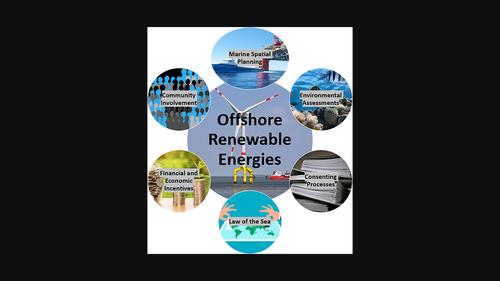海上可再生能源的社会经济、法律和政治背景
IF 5.4
3区 工程技术
Q2 ENERGY & FUELS
引用次数: 3
摘要
海上可再生能源已被确定为符合可持续发展目标的重要清洁能源。然而,它们的使用可能会与其他海洋活动以及保护生物多样性和海洋环境产生冲突。本文从法律和政治的角度分析了监管框架和海洋治理对此类装置实施的影响。从这个意义上说,它研究海洋法如何解决海洋能源设施与其他国家开展的其他活动(如航行)之间的潜在国际冲突。它还研究了预防性法律工具——海洋空间规划、战略环境评估和环境影响评估——的重要性,以预测和减少与其他海洋使用者的冲突以及这些结构可能造成的环境损害。同样,这项研究分析了不同的国家同意程序和法律经济支持计划,以确定哪些能更快地推动此类项目的实施。最后,还强调了加强受影响沿海社区和当地利益相关者参与决策过程以及海上可再生能源项目的社会经济效益的相关性,以提高其社会接受度。本文章由计算机程序翻译,如有差异,请以英文原文为准。

Socio‐economic, legal, and political context of offshore renewable energies
Offshore renewable energies have been identified as important clean sources of energy in line with sustainable development goals. However, their use can generate conflicts with other maritime activities, as well as the protection of biodiversity and the marine environment. This article analyses the influence of regulatory frameworks and ocean governance in the implementation of such devices, from a legal–political point of view. In this sense, it studies how the law of the sea addresses potential international conflicts between ocean energy installations and other activities (e.g., navigation) developed by other states. It also studies the importance of preventive legal tools—marine spatial planning, strategic environmental assessment, and environmental impact assessment—to anticipate and reduce clashes with other sea users as well as environmental damages that may be caused by these structures. Likewise, this research analyses different national consent procedures and legal–economic supporting schemes, to identify those that boost the implementation of such projects more quickly. Finally, the relevance of enhancing the involvement of affected coastal communities and local stakeholders in the decision‐making processes, as well as in the socio‐economic benefits of offshore renewable energy projects to increase their social acceptance, is also emphasized.
求助全文
通过发布文献求助,成功后即可免费获取论文全文。
去求助
来源期刊

Wiley Interdisciplinary Reviews-Energy and Environment
ENERGY & FUELS-
CiteScore
11.70
自引率
3.30%
发文量
42
期刊介绍:
Wiley Interdisciplinary Reviews: Energy and Environmentis a new type of review journal covering all aspects of energy technology, security and environmental impact.
Energy is one of the most critical resources for the welfare and prosperity of society. It also causes adverse environmental and societal effects, notably climate change which is the severest global problem in the modern age. Finding satisfactory solutions to the challenges ahead will need a linking of energy technology innovations, security, energy poverty, and environmental and climate impacts. The broad scope of energy issues demands collaboration between different disciplines of science and technology, and strong interaction between engineering, physical and life scientists, economists, sociologists and policy-makers.
 求助内容:
求助内容: 应助结果提醒方式:
应助结果提醒方式:


